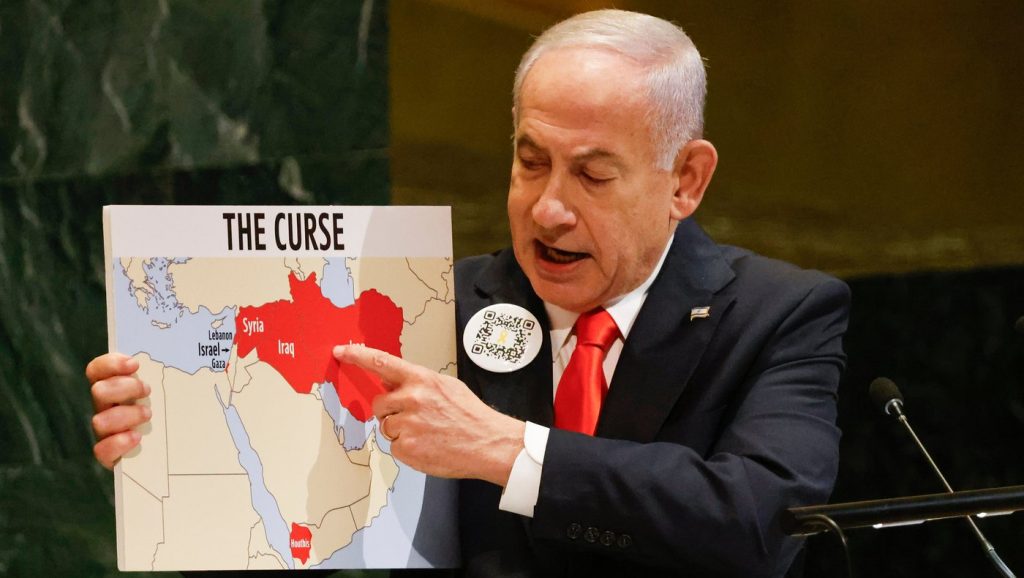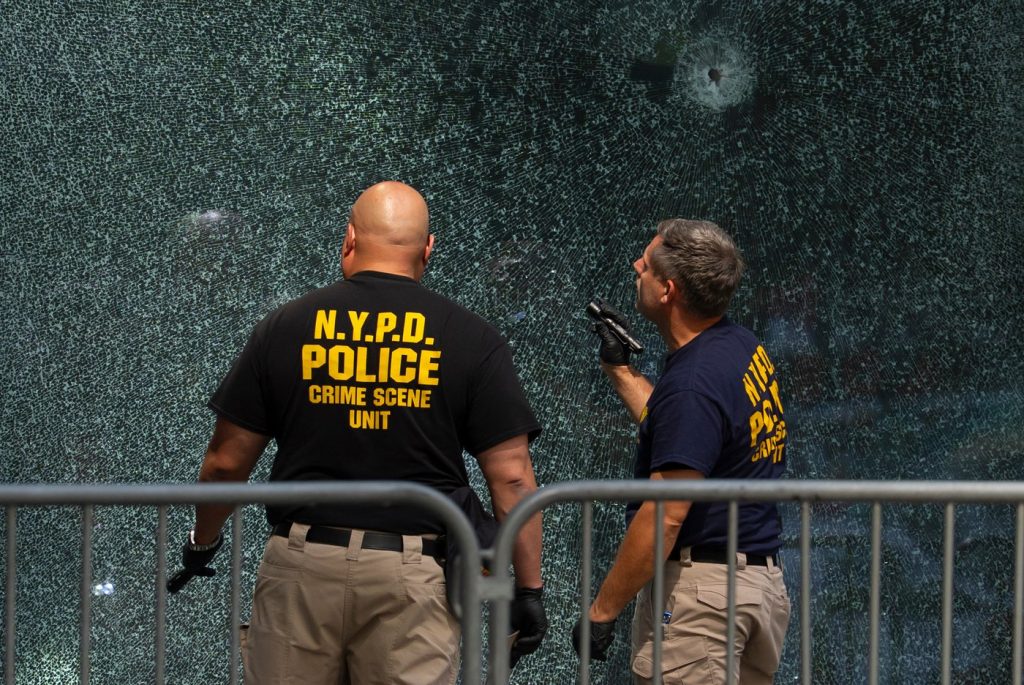UNITED NATIONS (AP) — Encircled by criticism and protests at the United Nations, Israeli Prime Minister Benjamin Netanyahu delivered a defiant speech on Friday, asserting that Israel "must finish the job" against Hamas in Gaza. Despite escalating international isolation due to his refusal to cease hostilities, he emphasized, "Western leaders may have buckled under the pressure. And I guarantee you one thing: Israel won’t." This statement was made during his address at the U.N. General Assembly, where numerous delegates from various countries walked out as he began his speech.
Netanyahu's comments came in response to recent decisions by several nations to recognize Palestinian statehood. He declared, "Your disgraceful decision will encourage terrorism against Jews and against innocent people everywhere." As he spoke, shouts from protestors reverberated throughout the assembly hall, contrasted by applause from his supporters in the gallery. While the U.S. delegation, a significant ally of Israel, remained seated during his address, many other nations sent lower-level diplomats to represent them, skipping their senior officials.
In his remarks, Netanyahu voiced concerns regarding anti-Semitism, stating, "Anti-Semitism dies hard. In fact, it doesn’t die at all." He has been known to label his critics as anti-Semites. Facing accusations of war crimes and pressure to end the ongoing conflict, his speech served as a platform to counter the growing dissent from the international community.
During his address, Netanyahu utilized visual aids, including a map titled "THE CURSE," detailing Israel’s challenges in the region. He prominently displayed a pin with a QR code that links to information concerning the Hamas attack on October 7, 2023, which triggered the current war. Members of the Israeli delegation also wore similar pins. In a bid to communicate his message to those in Gaza, the Israeli government set up loudspeakers along the border and claimed to have commandeered mobile phones in the area to broadcast his words. However, journalists in Gaza reported that there was no immediate evidence of such broadcasts.
Netanyahu mentioned that these measures were intended to reach the Israeli hostages still held in Gaza, reading their names aloud during part of his speech delivered in Hebrew. However, the bulk of his address was directed toward an increasingly critical global audience. His annual speech to the U.N. General Assembly has always garnered significant attention, and this year, with mounting pressures, the stakes appeared particularly high.
Recent days saw countries like Australia, Canada, France, and the United Kingdom announcing recognition of an independent Palestinian state, while the European Union discussed potential tariffs and sanctions against Israel. A nonbinding resolution urging Israel to commit to a two-state solution was passed by the assembly, which Netanyahu has rejected as a viable option. The International Criminal Court has issued an arrest warrant for Netanyahu, alleging crimes against humanity, which he vehemently denies. Meanwhile, the U.N. has begun to consider allegations from South Africa claiming genocide against Palestinians in Gaza.
As Netanyahu addressed the assembly, hundreds of pro-Palestinian demonstrators gathered nearby, expressing their dissent. Nidaa Lafi, an organizer from the Palestinian Youth Movement, asserted that "Israel has chosen a war against every conscientious human being in this world," sparking chants of "shame" from protestors. Numerous nations at a recent U.N. Security Council session denounced the initial Hamas attack that killed approximately 1,200 Israelis and called for an immediate ceasefire and a humanitarian influx to Gaza. The Israeli military's ongoing offensive has resulted in over 65,000 Palestinian deaths and displaced an overwhelming majority of Gaza’s population, with many now facing starvation.
While over 150 countries have recognized Palestinian statehood, the United States continues to omit such recognition, maintaining strong support for Israel. However, former President Donald Trump indicated there might be limits, stating he would not support Israeli annexation of the occupied West Bank. Within Netanyahu's government, proponents of annexation are present, although no formal announcement has been made. Recent approvals for a settlement project in the West Bank raised concerns over the potential ramifications for a future Palestinian state.
Netanyahu's address preceded one from Palestinian Authority leader Mahmoud Abbas, who spoke via video on Thursday after being denied entry to the U.S. He welcomed international recognition but urged the global community to do more to support Palestinian statehood. Abbas remarked, "The time has come for the international community to do right by the Palestinian people" and help them achieve their legitimate rights against occupation. Abbas leads the internationally recognized Palestinian Authority, which governs parts of the West Bank, while Hamas governs Gaza.
Israel captured the West Bank, East Jerusalem, and Gaza during the 1967 Middle East war and withdrew from Gaza in 2005. Palestinians envision all three territories forming their state as part of a two-state solution long endorsed by the international community. However, Netanyahu staunchly opposes this idea, contending that establishing a Palestinian state would reward Hamas. He reiterated during his speech that Israel fights against radical Islam on behalf of all nations, asserting, "You know deep down that Israel is fighting your fight."












